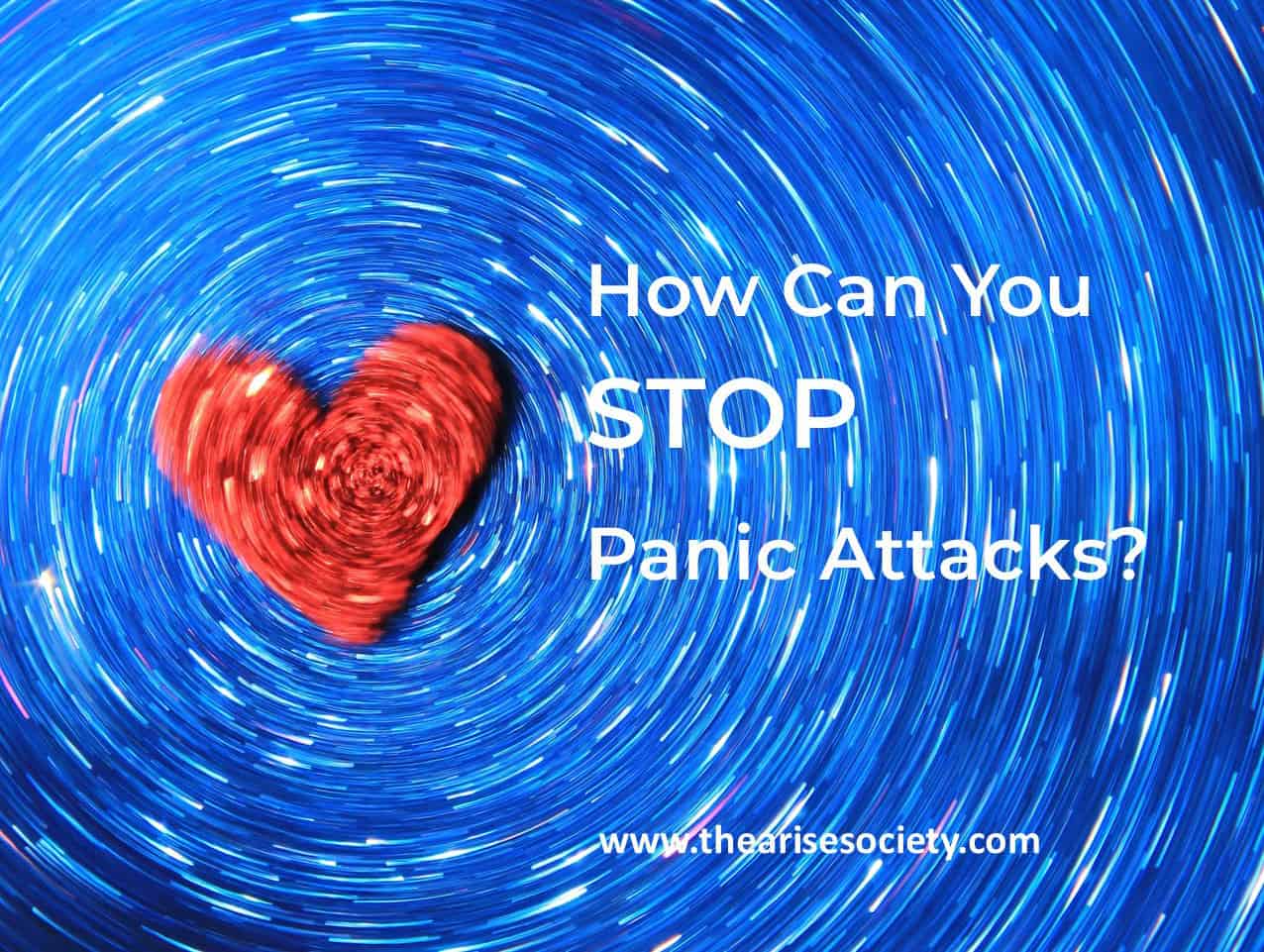How Can You Stop Panic Attacks?
A panic attack is a sudden feeling of intense fear, panic or anxiety that triggers physical reactions when there is no actual imminent danger.
The scariest part of having a panic attack may be the physical symptoms. People often describe feeling like they are having a heart attack when it is instead a panic attack. Panic attacks are a disproportionate fear that is most intense within 10 minutes before the symptoms will begin to subside.

Panic attacks can create physical and emotional symptoms, such as
- Worsening worries and fears
- A feeling of impending doom
- Rapid heartbeat
- Sweating and flushing
- Tunnel vision
- Shaking and trembling
- Feeling a flight or fight response
- Dizziness and lightheadedness
Panic attacks can be triggered by
- a stressful job
- driving
- social situations
- phobias (such as claustrophobia)
- reminders or memories of traumatic experiences
- chronic illnesses
- withdrawal from drugs or alcohol
- caffeine
- medication and supplements
- thyroid problems
Tips to handle panic attacks when they occur
Challenge your thoughts
The first step is to notice and stop your fear-provoking thoughts (negative thoughts can increase your worry or fear). For instance, you might feel like this panic attack is going to “last forever” or that you will die. Before thoughts have spiraled out of control, start by simply witnessing the thoughts objectively.
Take deep breaths
Panic attacks can cause rapid heartbeat and breathing, and chest tightness can make the breaths shallow. This type of breathing can make feelings of anxiety and tension worse. Instead, try to breathe slowly and deeply, concentrating on each breath.
Focus on an object
Focusing on one stimulus can reduce other stimuli. If you have recurring panic attacks, you can carry a specific familiar object to help ground you. Grounding techniques can help people dealing with panic attacks, anxiety, and trauma. Learn more about grounding techniques here.
Repeat a phrase
Internally repeating a phrase can help you come out of a panic attack. The phrase can be as, “This too shall pass.”
Walk or do some light exercise
Moving around releases endorphins that relax the body and improve mood. Exercising regularly can help reduce anxiety over time, which may lead to a reduction the severity of panic attacks.
Take any prescribed medications
Depending on the severity of panic attacks, a doctor may prescribe medication that you’d use as needed. These medications typically work fast.
Lifestyle changes that may help prevent panic attacks
- Reduce and manage sources of stress in your life
- Learn how to identify and stop negative thoughts
- Get regular, moderate exercise
- Practice meditation or yoga
- Limit your consumption of alcohol, drugs, and caffeine
- Eat a balanced diet
- Supplements
Research has suggested that various supplements may help relieve the symptoms of anxiety. See here for the Top 10 evidence-based supplements for anxiety.
Vitamin D
Vitamin D is important for mood regulation, as well as nerve and brain health. Research has established a link between vitamin D levels and depression, claiming that taking vitamin D may help the condition.
Vitamin B-12
B vitamins are a group of eight different nutrients that work together to manage many processes in the body, including stress levels. A 2017 study found that people who had lower blood levels of vitamin B-12 were more likely to have depression or anxiety.
Magnesium
Magnesium is an important mineral for almost every system in the. A 2017 review looked at the results of 18 different studies. The researchers found that magnesium supplements may improve measures of anxiety.
Omega-3 fatty acids
Omega-3 fats play an important role in brain health, according to the Office of Dietary Supplements at the National Institutes of Health.
Note: Omega-3 fatty acids can interfere with certain medications, including blood thinners. You should ask your doctor before taking omega-3 supplements if you have existing health conditions or take any prescription medications.
When to Get Help
Panic attacks, while very uncomfortable, are not dangerous. But they are hard to manage on your own, and may get worse without treatment. There is support and treatment that can help you to control panic attacks and prevent them from happening in the future.
The Arise Society helps young adults that are struggling with anxiety, depression, gaming and other motivational issues. We provide personalized academic, therapeutic, and social support in a real-world setting, which gives our students the skills to reach their fullest potential. They attend college and benefit from group and individual therapy, 24/7 availability of mentor support, activities and social events. We empower students to regain a sense of confidence, independence, and health as they move forward in life.
For a virtual/in-person tour: (801) 300-9995 or admissions@thearisesociety.com
Sources
Anxiety and Depression Association of America: Panic Disorder Symptoms
Medical News Today: How Can You Stop a Panic Attack
Medical News Today: Grounding techniques: Step-by-step guide and methods
Healthline: What’s the Difference Between a Panic Attack and an Anxiety Attack?
Journal of Affective Disorders: Vit D and depression
Journal of Biomedical and Clinical Research: Correlation between Depression and Anxiety and the Level of Vitamin B12 in Patients with Depression and Anxiety and Healthy Controls
MDPI: The Effects of Magnesium Supplementation on Subjective Anxiety and Stress—A Systematic Review
National Institutes of Health: Omega-3 Fatty Acids Fact Sheet
Frontiers in Physiology: Food for Mood: Relevance of Nutritional Omega-3 Fatty Acids for Depression and Anxiety
Medical News Today: Top 10 evidence-based supplements for anxiety

Get In Touch
Orem, UT 84058
thearisesociety.com
Phone: (801) 300 - 9995
Fax: (801) 405 - 0103



